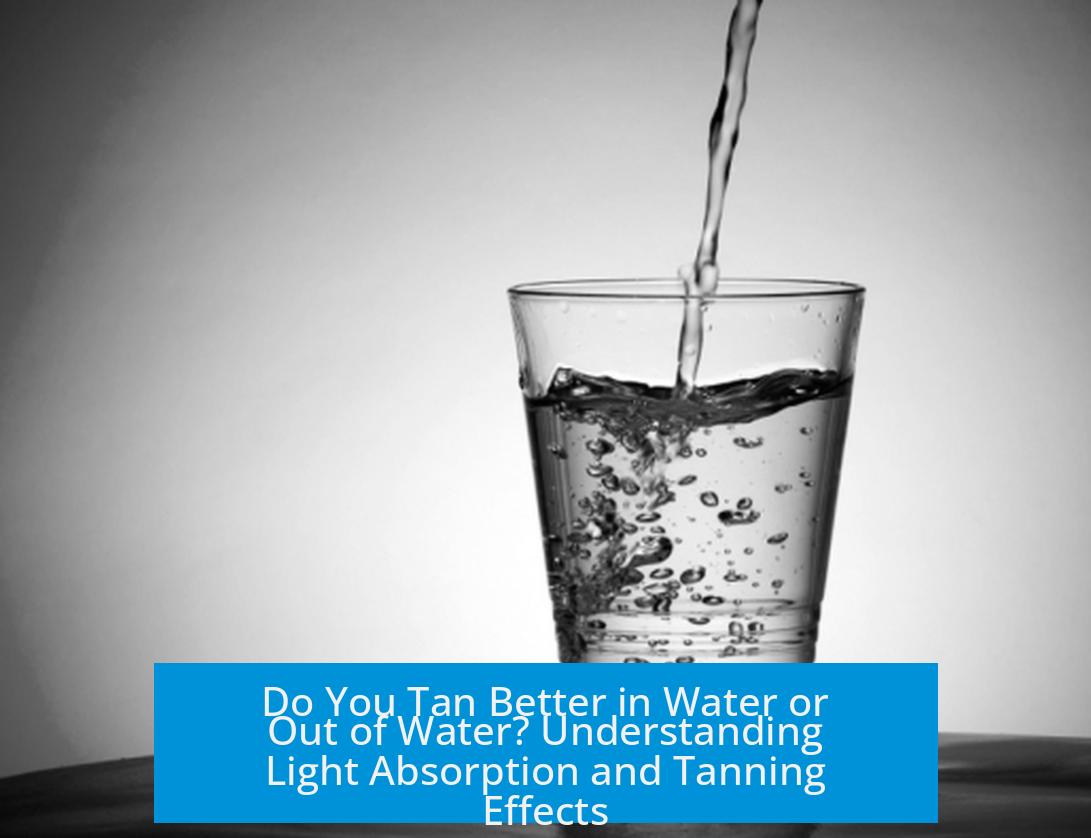Do You Tan Better in Water or Out of Water?
You do not tan better in water compared to out of water; in fact, you generally absorb more UV light—and thus tan more—when you are out of the water.
How Light Behaves in and out of Water
When sunlight hits water, much of it is refracted, meaning the light changes angle as it passes from air to water. Some of the light also reflects off the surface, sending rays back into the air.
- Water absorbs some UV light due to particles like dirt and algae.
- This absorption and reflection reduce the intensity of UV rays that reach the skin underwater.
Therefore, UV exposure is lower inside the water than when standing outside, directly exposed to sunlight.
Effects of Being in Water on Tanning
Sunscreen plays a critical role in protecting skin from UV rays but tends to wash off during swimming. This could increase UV exposure while in water if sunscreen is not reapplied.
Also, water cools the body, delaying the sensation of heat and sunburn. People often stay longer exposing themselves in water without feeling discomfort, which may lead to a deeper tan over time.
Reflection and Evenness of the Tan
In water, light reflects from many angles, illuminating the body more evenly. This lateral dispersion can lead to a more uniform tan compared to tanning on land, where light mostly hits from one direction.
Complexity of Tanning Beyond Light Intensity
Tanning is a physiological response to UV exposure and not merely a function of light proximity or intensity. Skin types vary in their ability to tan. Excessive intensity can cause burning rather than tanning.
The intensity and wavelength distribution of light change after passing through water. Some wavelengths that promote tanning may be filtered or altered, reducing tanning efficiency in water. Conversely, cooling effects in water may indirectly support tanning by prolonging exposure time without discomfort.
Summary of Key Points
- Water refracts and absorbs UV light, reducing exposure underwater.
- You receive more direct UV radiation out of water, generally resulting in more tanning.
- Sunscreen washes off in water, potentially increasing risk if not reapplied.
- Water’s cooling effect can increase exposure time without immediate sunburn sensation.
- Reflected light in water promotes a more even tan distribution.
- Tanning depends on complex physiological and environmental factors, not just light amount.
Does being in water increase or decrease UV exposure compared to being out of water?
Water bends light, changing its angle. Some UV light is reflected or absorbed by water impurities. Overall, you get less UV exposure in water than outside.
Why might people think they tan better in water?
Water reflects light evenly all around the body. This can create a more uniform tan compared to tanning on land where sunlight hits one side at a time.
Does the cooling effect of water affect how long you stay in the sun?
Yes, water cools your skin, so you may stay in the sun longer without feeling hot. This longer exposure can increase the risk of sunburn despite lower UV intensity.
Does sunscreen work the same in water as on land?
Sunscreen can wash off gradually in water. This reduces its protection and may increase UV absorption over time if not reapplied.
Is tanning solely dependent on how much light your skin absorbs?
No. Tanning is a complex process affected by light intensity, wavelengths, and individual skin response. Water alters light quality, so tanning effects vary.





Leave a Comment